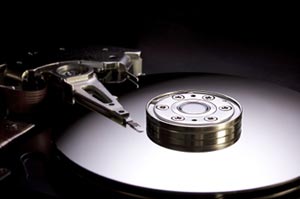 Since there is still an enormous evolution in external hard drives, information becomes stale while you write it, so here is an update on the subject that starts with a question from one of my pupils:
Since there is still an enormous evolution in external hard drives, information becomes stale while you write it, so here is an update on the subject that starts with a question from one of my pupils:
“I didn’t know hard drives can die on me so quickly”
Any piece of hardware can die on you any moment, even the best brands can fail suddenly! The first 3 months are often critical. If the hard drive survives that period without hickups, it will probably live for a long time. However, there are exceptions and therefore you best have a second hard drive as a backup. The torture never stops, I know 🙂
According to the article at the end of this post, it is better to have several smaller drives then one big and I agree with that. I would rather go for a 500mb or smaller and buy a second drive. You probably only pay a bit more because you’re buying a drive that is no longer a hype. So, instead of buying the latest Terrabyte(1000Gb) hard drive, buy 2 of 500Gb or if your computer configuration permits it: 3X 300Gb.
Big hard drives of 1terrabyte and more are slower, it takes longer to scan, find errors and to defrag (read part I on defragmentation). However, in the near future, Terabyte hard drives will be become the norm and they will get faster in time. You can buy already drives that are twice the speed of normal drives. Actually everything becomes faster and bigger but that makes hardware even more vulnerable and prone to error because heat and speed are directly related to wear and tear. Keep in mind: It takes time to overcome the typical infancy problems of new products.
Hence my motto: never go for the hype, go for well tested material.
I bought a MyBook of Western Digital 1 year after the model was released. The price was great and so the performance (although I didn’t like the software on the drive, so I removed it).
Read reviews before you buy
Another reason for buying late is that you can read reviews on them. I would disregard emotional reviews, the type that says: “I will never buy this crap again”. Perhaps the reviewer was unlucky and bought a Monday morning piece or his/her computer configuration was not set up for this type of hardware. You can never tell, but an emotional review is not helpful in most cases. Instead, look for a balanced review, one that shows the positive and negative sides.
Many problems, especially the ones where the computer doesn’t recognize the hardware, has to do with the configuration of your computer. It often helps to check user forums to solve the problem.
Here is a great article on hard drive comparison so that you can make an informed choice on what type of hard drive you need for your situation.
Watch for my upcoming article on solving hard drive problems. Many hard drives appear to be dead but aren’t. Often you can recuperate the data on your hard drive and there are ways to avoid problems. Stay tuned!
